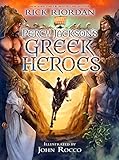The Significance Of The Holy Month Of Ramadan
Language
Reading Level
Listen to Article
Alignment

Ramadan is the ninth and most sacred month in the Islamic lunar calendar. During this month, Jibril (the archangel Gabriel in the Judeo-Christian faith) unveiled the first verses of the Quran — Islam's holy text — to Prophet Muhammad. Ramadan's start date is determined by the appearance of the new crescent Moon. This year, it is expected to begin at sundown on or around March 11, 2024.
Fasting during Ramadan is one of the five pillars, or duties, of Islam. Healthy adult Muslims and children over 14 do not eat or drink anything from dawn to dusk. The temporary denial of food and water is thought to bring about awareness and gratitude for everything Allāh (God) has provided. It also helps develop empathy for the poor.

Observers rise before dawn to eat their first meal, called Suhoor or Suhur. It includes a variety of protein-rich traditional foods, fresh fruits, and vegetables. Morning prayers follow the feast. After that, everyone goes about their regular daily routine.
Most Muslims break the fast at sunset by eating a few dates. They then pray for five to 15 minutes before settling down for the day's second and final meal. The feast, known as Iftar, is usually enjoyed with extended family members and friends. Many mosques also host Iftar gatherings.
The meal is followed by the night prayer called Taraweeh. Derived from the Arabic word meaning "to rest and relax," it is a form of Islamic meditation. Taraweeh prayers are usually held at a mosque. They involve reading parts of the Quran and performing rak’ahs — cycles of movement in Islamic prayer. The prayers can last up to two hours.

Ramadan ends with the sighting of a New Moon. This usually happens after 29 to 30 days. This year, Ramadan is expected to end at sundown on or around April 9. The month of fasting and prayers is followed by Eid al-Fitr, or the "festival of breaking the fast." The celebrations can last up to three days. They begin with group prayers to thank Allāh for providing endurance and strength during the holy month. Observers then enjoy a celebratory feast with family and friends or community members. Eid is like Christmas for Muslim children. Many receive money or gifts from their elders.
Charitable giving, or Zakat, is the third pillar of Islam. All adult Muslims who meet the necessary criteria have to donate 2.5 percent of their wealth acquired over the previous lunar year. Most people give the mandatory donation during the auspicious month of Ramadan. Those who do not meet the minimum wealth requirement, or Nisab, offer sweet bread and dates instead.
Ramadan Mubarak!
Resources: Wikipedia.org, Ing.org, PBS.org

Get the Workbook for this article!
Workbook contains: Article, Reading Comprehension, Critical Thinking Questions, Vocabulary in Context (+ answers), Multiple Choice Quiz (+ answers), Parts of Speech Quiz (+ answers), Vocabulary Game (+ answers)Cite Article
Learn Keywords in this Article
20 Comments
- gawlaxsy9 monthsHappy Ramadan Everbody!
- myareg2339 monthsHappy Ramadan to you too
- fires9 monthsAwesome😃😃
- cecamebyliti9 monthsramadan mubarak to all the Muslim out there :)
- ferndeafgal9 monthsCool!
- billybob19 monthsAwesome!!! :)
- cricketman1239 monthsIt is so cool to see new religions
- cecamebyliti9 monthsYup that is my religion
- bethanybeach9 monthsThat food looks delicious!!!!🤤




